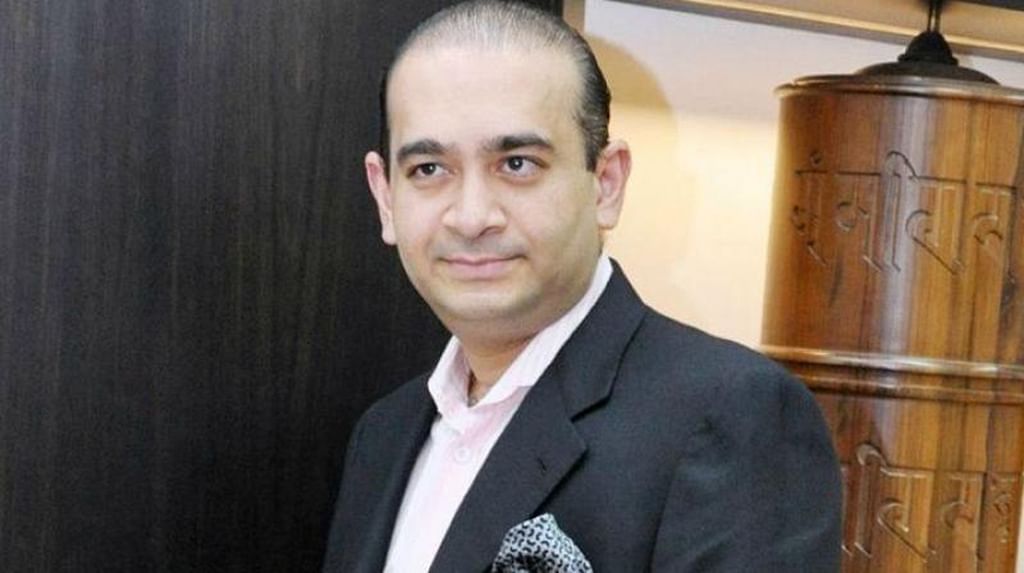London: Nirav Modi, the diamond merchant wanted in India on charges of fraud and money laundering in the estimated USD 2-billion Punjab National Bank (PNB) scam case, lost his legal battle Thursday against extradition. A United Kingdom (UK) judge ruled that Nirav Modi does have a case to answer before the Indian courts.
The 49-year-old appeared via videolink from Wandsworth Prison in south-west London. He showed no emotion as District Judge Samuel Goozee handed down his judgment at Westminster Magistrates’ Court here.
“I am satisfied on the evidence that a prima facie case of fraud and money laundering is established,” said Judge Goozee. He read out parts of his judgment in court. He concluded that he will send his ruling to the UK’s Secretary of State, Priti Patel. It is the Cabinet minister who is authorised to order an extradition under the India-UK Extradition Treaty and has two months within which to make that decision.
The Home Secretary’s order rarely goes against the court’s conclusions. Patel has to consider only some very narrow bars to extradition which are unlikely to apply in this case, including the possible imposition of a death penalty.
Whatever the ministerial decision, the losing side – Nirav – has up to 14 days within which to approach the High Court and seek leave to appeal after the Home Secretary’s decision. Any appeal, if granted, will be heard at the Administrative Division of the High Court here.
Nirav was arrested on an extradition warrant March 19, 2019. He has appeared via videolink from Wandsworth Prison for a series of court hearings in the extradition case. His multiple attempts at seeking bail have been repeatedly turned down. It was turned down both at the Magistrates’ and High Court level, as he was deemed a flight risk.
Nirav is the subject of two sets of criminal proceedings, with the Central Bureau of Investigation (CBI) case relating to a large-scale fraud upon PNB through the fraudulent obtaining of letters of undertaking (LoUs) or loan agreements, and the Enforcement Directorate (ED) case relating to the laundering of the proceeds of that fraud. He also faces two additional charges of ‘causing the disappearance of evidence’ and intimidating witnesses or ‘criminal intimidation to cause death’, which were added on to the CBI case.
Analogy of alleged crime
January 29, 2018: Punjab National Bank (PNB) files police complaint against Nirav Modi, Mehul Choksi and others accusing fraud to the tune of Rs 2.81 billion.
February 5: The Central Bureau of Investigation (CBI) launches an investigation into the alleged scam.
February 16: The Enforcement Directorate (ED) seizes a cumulative Rs 56.74 billion worth of diamonds, gold and jewellery from Nirav Modi’s home and offices.
February 17: The CBI makes first arrest in the case. Two PNB employees and an executive of Nirav’s group were detained.
February 17: Government suspends passports of Nirav and Mehul Choksi for four weeks in connection with the PNB fraud.
February 21: CBI arrests CFO of Nirav’s firm and two other senior executives of his firms. It also seals his farmhouse in Alibaug.
February 22: The ED seizes nine luxury cars belonging to Nirav and his firms.
February 27: A magistrate’s court issues a bailable arrest warrant against Nirav.
June 2: The Interpol issues Red Corner Notice against Nirav for money laundering.
June 25: The ED moves a special court in Mumbai seeking Nirav’s extradition.
August 3: The Indian Government sends a request for the extradition of Nirav to the UK authorities.
August 20: The CBI officials request Interpol Manchester to detain Nirav after the latter informs about his presence in London to Indian authorities.
December 27: The UK informs India that Nirav is living in the country.
March 9, 2019: British newspaper ‘The Telegraph’ confronts Nirav on London’s streets and confirms his presence in the UK.
March 9: The ED says the government of the UK has sent an extradition request of fugitive diamantaire Nirav to a UK court for further proceeding.
March 18: Westminster Court in London issues arrest warrant against fugitive Nirav after the Indian government request was forwarded to the court by the UK Home Office
March 20: Nirav arrested in London and produced in Westminster Court, which denies him bail.
March 20: Nirav sent to Her Majesty’s Prison (HMP) Wandsworth till March 29
March 29: A Westminster Magistrates Court in London rejects Nirav Modi’s second bail application, saying there are ‘substantial grounds’ to believe that he will fail to surrender. The judge fixes April 26 as the next date of hearing when he will appear via video link from jail.
May 8: Nirav Modi denied bail for a third time, to remain in UK jail.
June 12: UK court rejects Nirav Modi’s bail for fourth time over fears he would abscond.
August 22: Nirav’s remand extended till September 19, UK extradition trial expected in May 2020.
November 6: UK court rejects Nirav’s new bail application
May 11, 2020: Nirav’s five-day extradition trial in PNB fraud case begins in UK
May 13: Indian government submits more proof against Nirav in money laundering case
September 7: UK court given fresh video tour of Mumbai’s Arthur Road Jail
December 1: Nirav’s remand extended, final hearings in 2021
January 8, 2021: UK court decides to pronounce judgement in Nirav’s extradition case February 25
February 25: UK court rules Nirav can be extradited to India to face charges of fraud and money laundering.
